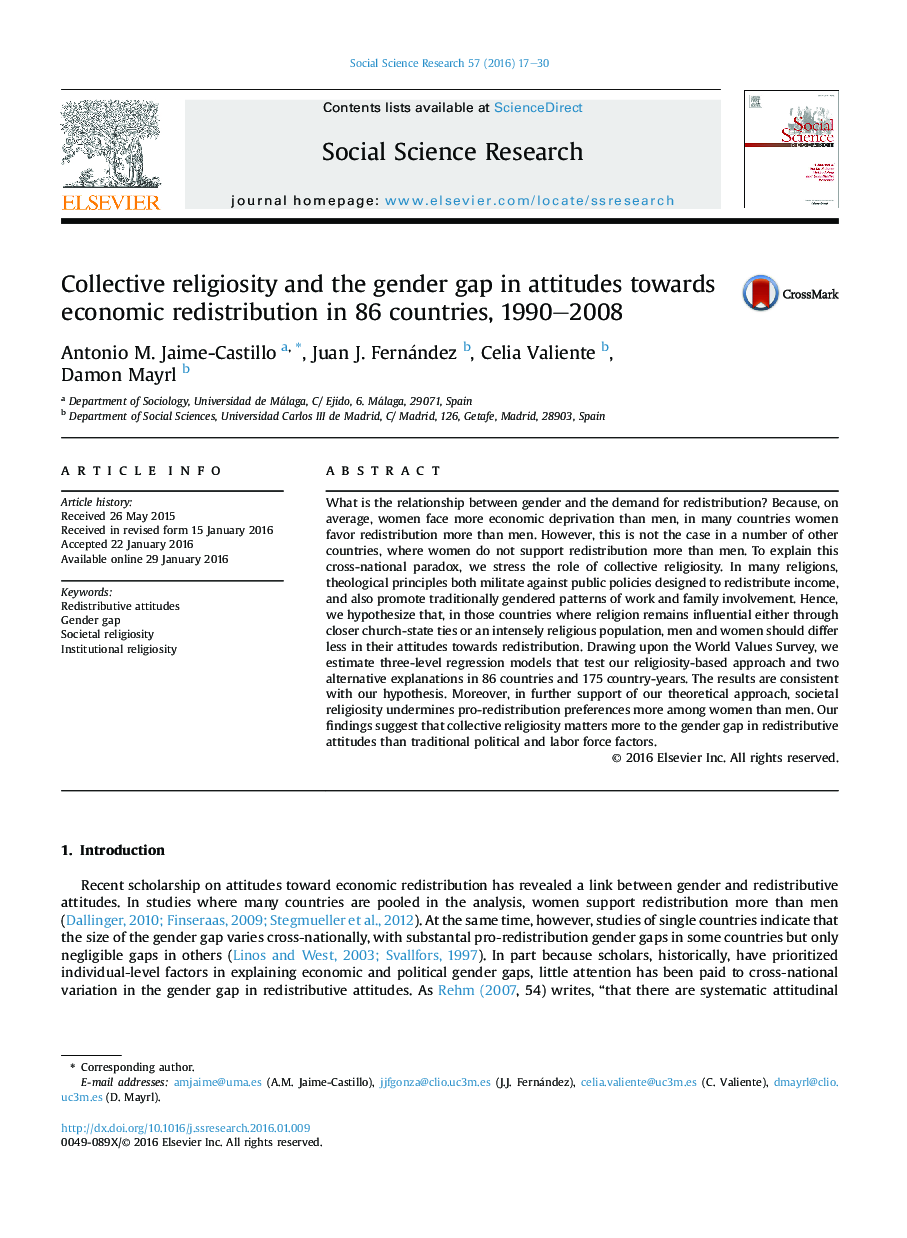| کد مقاله | کد نشریه | سال انتشار | مقاله انگلیسی | نسخه تمام متن |
|---|---|---|---|---|
| 955634 | 1476118 | 2016 | 14 صفحه PDF | دانلود رایگان |
• The gender gap in the support for redistribution varies substantially across countries.
• Societal religiosity is the strongest predictor of the pro-redistribution gender gap.
• Higher societal religiosity produces smaller pro-redistribution gender gaps.
• Institutional religiosity is not related to the pro-redistribution gender gap.
What is the relationship between gender and the demand for redistribution? Because, on average, women face more economic deprivation than men, in many countries women favor redistribution more than men. However, this is not the case in a number of other countries, where women do not support redistribution more than men. To explain this cross-national paradox, we stress the role of collective religiosity. In many religions, theological principles both militate against public policies designed to redistribute income, and also promote traditionally gendered patterns of work and family involvement. Hence, we hypothesize that, in those countries where religion remains influential either through closer church-state ties or an intensely religious population, men and women should differ less in their attitudes towards redistribution. Drawing upon the World Values Survey, we estimate three-level regression models that test our religiosity-based approach and two alternative explanations in 86 countries and 175 country-years. The results are consistent with our hypothesis. Moreover, in further support of our theoretical approach, societal religiosity undermines pro-redistribution preferences more among women than men. Our findings suggest that collective religiosity matters more to the gender gap in redistributive attitudes than traditional political and labor force factors.
Journal: Social Science Research - Volume 57, May 2016, Pages 17–30
